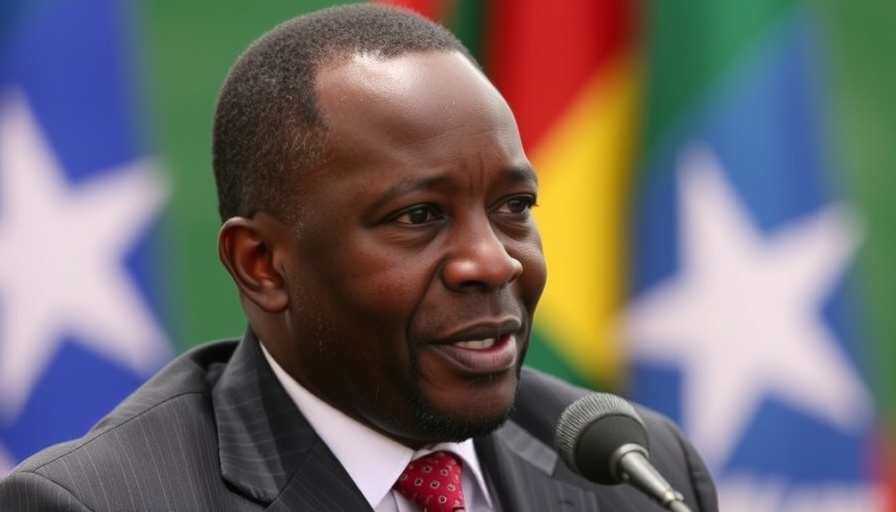
Opposition Voices Dismay Over Sideline Politics in South Sudan
In a surprising turn of events, the Sudan People’s Liberation Movement/Army-In Opposition (SPLM/A-IO) has launched a vehement protest against the transitional unity government's decision to acknowledge a splinter faction of the party, effectively sidelining First Vice President Riek Machar. This announcement has raised serious concerns regarding the stability of governance in South Sudan, particularly given Machar's tight grip on the political landscape from his house arrest.
The Implications of Sidelining Machar
Oyet Nathaniel Pierino, acting chairman of SPLM/A-IO, expressed strong condemnation of the government’s strategy to pursue peace by recognizing a faction not aligned with Machar. He articulated that the decision undermines the authority of Machar while simultaneously creating a dangerous disconnect from the realities on the ground. “Most members of the transitional government are either in hiding or have fled Juba,” Nathaniel stated, highlighting the fragility of the current governance structure.
Concerns Over Legitimacy
The lawfulness of any moves by the transitional government without a substantial representation from defections or absences is questionable. As Nathaniel rightly pointed out, this underscores the unsustainable nature of such decisions under current conditions. Coupled with allegations of the SPLM’s prominent role in Machar's political ouster, there exists widespread skepticism towards the integrity of the leadership changes proposed.
Calls for Comprehensive Engagement and Reform
Cabinet Affairs Minister Martin Elia Lomuro's advocacy for elections is welcomed; however, it remains pragmatic to consider how feasible this is in light of the current political landscape. It raises critical questions for both policymakers and international observers about the pathways forward for governance, stability, and authority in South Sudan.
International Perspectives on South Sudan’s Governing Challenges
The implications of these events extend beyond South Sudan’s borders. As observers in global financial markets scrutinize the nation's ascending struggle, the outcomes could have significant ramifications for international investors. Business leaders and diplomats must prepare for a scenario where emerging governance issues threaten trade relations and economic engagements in the region.
Understanding the Broader Historical Context
The ongoing disputes for power in South Sudan are not isolated events but rather represent deeper historical grievances and systemic issues within the country's governance structures. Evaluating previous peace agreements, such as the 2018 revitalized peace contract, indicates a pattern where factions face challenges implementing provisions amid political tensions and unrest.
With these developments, it becomes increasingly vital for stakeholders, including international observers, businesses, and policymakers, to closely monitor the situation. Understanding these dynamics could not only shape diplomatic relations but also prepare investors to navigate the risks posed by potential instability, ensuring informed and responsible engagement with the South Sudanese market.
As South Sudan navigates these tumultuous waters, the pressing need for stability and effective governance cannot be overstated. The decisions taken today may very well determine the future trajectory of not only South Sudan but also broader regional dynamics in Africa.
In conclusion, as the walls of political sideline politics close in on figures like Riek Machar, the space available for effective governance shrinks, emphasizing the need for comprehensive engagement from all parties willing to contribute toward restoring peace and stability.
 Add Row
Add Row  Add
Add 


 Add Row
Add Row  Add
Add 

Write A Comment